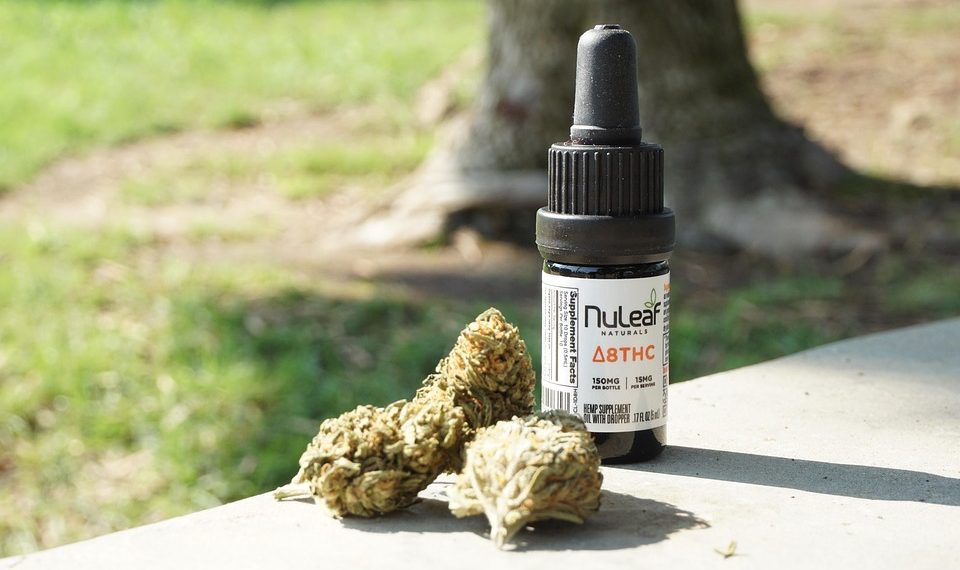Did you know that what you put on your salad could be a game-changer for your heart health? That’s right! The humble hemp oil, often overshadowed by its flashier cousins like olive or avocado oil, is making waves in the health community. If you’re curious about how this green elixir can support your cardiovascular well-being, you’re in for a treat. Let’s dive into the heart-healthy benefits of adding hemp oil to your diet.
Contents
1. Rich Source of Omega-3 and Omega-6 Fatty Acids
One of the biggest draws of hemp oil is its impressive profile of essential fatty acids. Hemp oil contains a balanced ratio of omega-3 to omega-6 fatty acids, which is crucial for maintaining heart health.
Why It Matters
Omega-3 fatty acids are known for their anti-inflammatory properties and can help reduce the risk of heart disease. They work to lower triglycerides, reduce blood pressure, and even prevent blood clots. On the flip side, omega-6 fatty acids play a role in cellular health and overall metabolic functions.
Pros and Cons
While it’s great to have both types of fatty acids, it’s essential to consume them in the right balance. Many diets are disproportionately high in omega-6, which can lead to inflammation. Hemp oil’s 3:1 ratio of omega-6 to omega-3 is often considered ideal.
Real-Life Application
Imagine drizzling hemp oil over a fresh salad or using it as a base for homemade salad dressings. Not only will you enhance the flavor, but you’ll also be doing your heart a favor.
2. Supports Healthy Cholesterol Levels
Cholesterol can often feel like a villain in our health narratives, but not all cholesterol is created equal. Hemp oil can help you manage your cholesterol levels effectively.
How It Works
Research suggests that the fatty acids in hemp oil can increase levels of good cholesterol (HDL) while potentially lowering bad cholesterol (LDL). A study published in the Journal of Nutrition found that the consumption of hemp oil positively influenced cholesterol levels.
Caveats
While hemp oil can be beneficial, it shouldn’t be seen as a stand-alone solution. Maintaining a balanced diet and an active lifestyle is key to managing cholesterol.
Personal Insight
I’ve noticed that incorporating hemp oil into my meals has not only given them a nutty flavor but also made me feel more proactive about my heart health. It’s like a tasty insurance policy!
3. Anti-Inflammatory Properties
Chronic inflammation is often linked to heart disease, and hemp oil could be a powerful ally in combating it.
The Science Behind It
Hemp oil contains gamma-linolenic acid (GLA), an omega-6 fatty acid that has been shown to reduce inflammation. This can be particularly beneficial for individuals dealing with chronic inflammatory conditions.
Real-World Impact
Incorporating anti-inflammatory foods into your diet can be a game-changer. Imagine swapping out your usual cooking oil for hemp oil when preparing your favorite dishes. You’ll not only enhance the flavor but also support your body in fighting inflammation.
A Word of Caution
While the anti-inflammatory properties of hemp oil are promising, it’s crucial to remember that it’s just one piece of the puzzle. A holistic approach that includes a variety of anti-inflammatory foods will yield the best results.
4. Nutrient-Dense Superfood
Hemp oil isn’t just about fatty acids; it’s also packed with nutrients that can contribute to overall heart health.
What’s Inside?
Hemp oil is rich in vitamin E, a powerful antioxidant that helps protect your cells from oxidative stress. Antioxidants play a vital role in reducing the risk of heart disease by combating free radicals in the body.
Easy Ways to Include It
You can easily incorporate hemp oil into your diet by adding it to smoothies, drizzling it over cooked vegetables, or using it in baking. The nutty flavor complements many dishes, making it a versatile addition to your pantry.
Real-World Example
Consider someone trying to boost their nutrient intake. A simple hemp oil smoothie with spinach, banana, and almond milk can be a delicious and nutritious breakfast option. It’s a small change that packs a nutritional punch!
5. May Help Manage Blood Pressure
High blood pressure is a significant risk factor for heart disease, and hemp oil may help in managing this condition.
What Research Says
Some studies indicate that the fatty acids in hemp oil can contribute to lowering blood pressure. A balanced intake of omega-3 and omega-6 fatty acids is essential for maintaining healthy blood pressure levels.
Practical Tip
If you’re looking to manage your blood pressure, consider incorporating hemp oil into your daily routine. Whether you use it in dressings, smoothies, or cooking, it can be a simple yet effective way to support your cardiovascular health.
Keep in Mind
While hemp oil can be beneficial, it’s essential to combine it with other heart-healthy lifestyle choices, such as regular exercise and a balanced diet.
FAQs
1. How much hemp oil should I consume daily for heart health?
While there’s no one-size-fits-all answer, a tablespoon or two daily is a good starting point. However, always consult with a healthcare provider for personalized advice.
2. Can I use hemp oil for cooking?
Yes, but avoid high-heat cooking methods as it has a low smoke point. It’s best used in dressings or drizzled over cooked dishes.
3. Is hemp oil the same as CBD oil?
No, hemp oil is derived from the seeds of the hemp plant and is rich in fatty acids, while CBD oil is extracted from the flowers and leaves and contains cannabidiol.
4. Are there any side effects of consuming hemp oil?
Hemp oil is generally safe, but some individuals may experience digestive issues. It’s always wise to start with small amounts and monitor how your body reacts.
Conclusion
Incorporating hemp oil into your diet can offer a variety of heart-healthy benefits, from providing essential fatty acids to supporting healthy cholesterol levels and managing blood pressure. It’s a versatile oil that can enhance your meals while contributing to your overall well-being.
As you explore the world of heart health, remember that no single food is a magic bullet. Instead, think of hemp oil as a valuable piece of your health puzzle. The more you learn about the foods you consume, the better equipped you’ll be to make choices that support your heart health.
Disclaimer: This article is for educational purposes only and is not a substitute for professional medical advice. Always consult a qualified healthcare provider before making changes to your health routine.
References
-
Simopoulos, A. P. (2002). The importance of the omega-6/omega-3 fatty acid ratio in cardiovascular disease and other chronic diseases. Experimental Biology and Medicine, 227(10), 920-926. https://journals.sagepub.com/doi/abs/10.1177/153537020222701003
-
Houghton, P. J., & Houghton, E. S. (2016). Nutritional characteristics of hemp seed oil. Journal of Nutrition & Food Sciences, 6(1), 1-7. https://www.longdom.org/abstract/nutritional-characteristics-of-hemp-seed-oil-42187.html
-
Mayo Clinic. (2021). Omega-3 fatty acids: An essential contribution. https://www.mayoclinic.org/drugs-supplements-omega-3-fatty-acids/art-20384340
Get Your FREE Natural Health Guide!
Subscribe now and receive our exclusive ebook packed with natural health tips, practical wellness advice, and easy lifestyle changes — delivered straight to your inbox.














